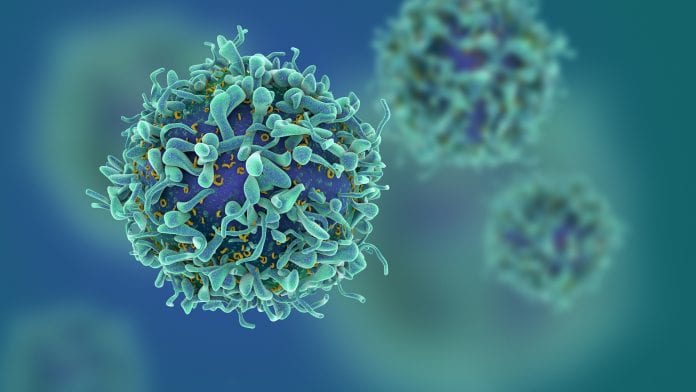
A new study has suggested that a balanced T cell response to COVID-19 is vital in helping the immune system effectively fight the virus, determining the severity of symptoms in patients.
Researchers from Singapore have analysed blood samples of patients with COVID-19 to understand the different responses of T cells to the virus. They suggest that to clear the virus from the body requires T cells to launch an efficient response that produces a fine balance of pro- and anti-inflammatory molecules.
The study has been published in the Journal of Experimental Medicine.
Determining the severity of symptoms
Many who contract COVID-19 do not develop any symptoms and the virus is efficiently cleared from the body by antibodies and T cells. However, in some patients, this response can trigger excessive inflammation that leads to more severe COVID-19 symptoms.
As what determines the severity of symptoms in the patients is yet unknown, Antonio Bertoletti, a professor at the Duke-NUS Medical School in Singapore, and colleagues including Nina Le Bert, a senior research fellow at Duke-NUS Medical School, and Clarence Tam, an assistant professor at the National University of Singapore Saw Swee Hock School of Public Health, studied a group of workers who were exposed to the virus in their dormitories in April 2020.
Bertoletti said: “Asymptomatic individuals constitute a variable but often large proportion of infected individuals, and they should hold the key to understanding the immune response capable of controlling the virus without triggering pathological processes.”
Over six weeks, the researchers took regular blood samples from 85 workers who were infected but remained asymptomatic and compared their T cells to those of 75 patients who were hospitalised with mild to moderate COVID-19.
The findings showed that not long after being infected with the virus, the frequency of T cells recognising it in the body was similar in both asymptomatic and symptomatic patients.
The researchers did find, however, that the T cells of asymptomatic patients produced greater amounts of two proteins called IFN-γ and IL-2, otherwise known as signalling proteins, or cytokines. These cytokines help to co-ordinate the immune system’s response to viruses and other pathogens.
The researchers say that the response was more co-ordinated in asymptomatic patients.
Balance is key
The team challenged some of the blood samples with fragments of viral proteins and found that the immune cells of asymptomatic individuals produce a balanced, well-proportioned mix of pro- and anti-inflammatory molecules. The immune cells of COVID-19 patients with symptoms produced a disproportionate amount of proinflammatory molecules.
They said: “Overall, our study suggests that asymptomatic SARS-CoV-2-infected individuals are not characterised by a weak antiviral immunity; on the contrary, they mount a highly efficient and balanced anti-viral cellular response that protects the host without causing any apparent pathology.”
Because most of the participants in the study were male and of Indian/Bangladeshi origin, the researchers say that results will need to be confirmed in women and other populations around the world.























Is there a difference in antiviral inflammation profile between symptomatic and asymptomatic COVID-19 cases and if a cut -off value (range) does exist, can it be corrected against controls (healthy people in the population)? How does the exposed yet uninfected group compare against the rest of the population in terms of secretome profile?